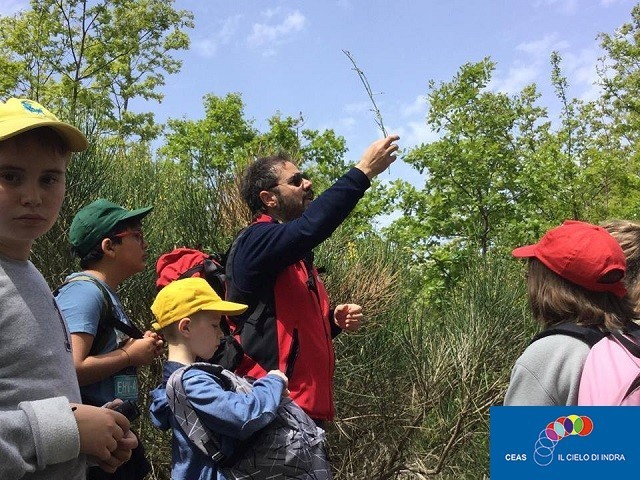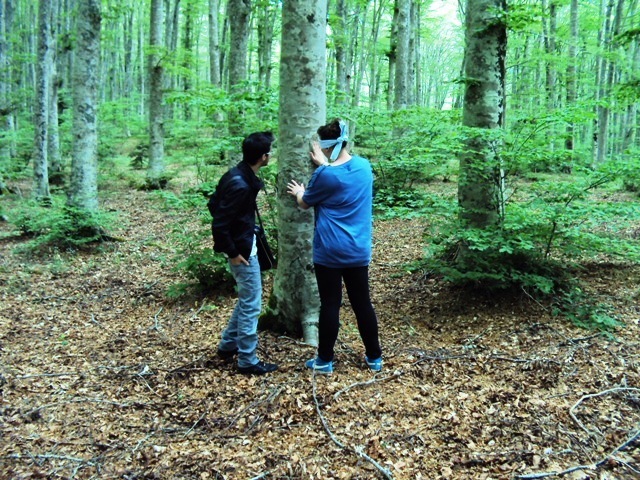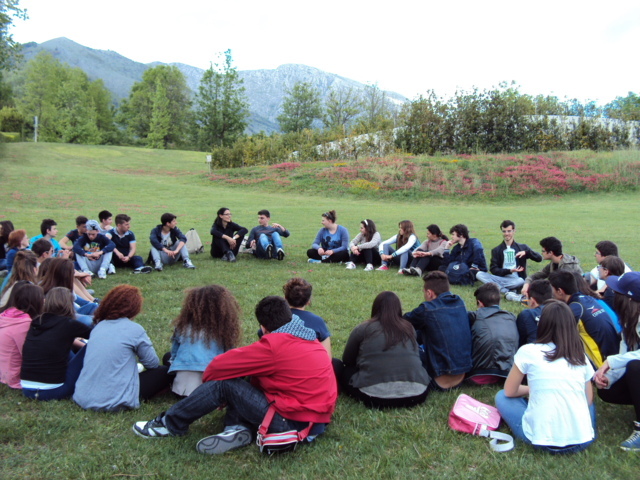


Schools represent a fundamental microcosm in the process of education and growth of the single individuals, the transformation of personality and the acquisition of fundamental behaviours for building relationships at all levels during the development of a human being.
The educational proposals of the CEAS Il Cielo di Indra are aimed at the Scholastic Institution to work together and educate young people and adults to responsible and supportive citizenship towards their fellows and towards the entire planet, to create a culture for modernity, to train competent citizens capable of facing the problems of their time.
The CEAS proposal to schools starts from the need to reconsider the planet situation with a fresh look and thought, as Edgar Morin says, an “ecological thought” capable of reading the complexity, and therefore the reciprocal relationships and influences between the single event and the cultural, social, economic, political, natural context. This proposal starts from the urgency to rebuild the link between man and the environment in which we live, on which we depend, and we cannot ignore.
This change passes through education and, in particular, through the school, which, despite the transformations that have taken place over the years, retains a special role in the development of society and culture.
The work proposed by the CEAS Il Cielo di Indra is constantly moving on three levels that involve both the operators and the recipients of the activities:
The level of personal growth which, as ecopsychology teaches us, is the most effective plan for promoting the development of greater environmental awareness and thinking of oneself in an ecological way: opening up to the contradictory, multiple and rich aspects of one’s being, in fact, the person develops the same relational modality in larger dimensions;
The level of relationship with others, of conflict management, cooperation, mutual responsibility since humanity is made up of individuals who perform actions on a daily basis, which in turn interact with those of others and result in the world we live in;
The level of the relationship with the whole environment and with any element of the universe, to understand the close bond that binds each of us to the world in which we live and the influence we mutually exercise.
Following these ideals, the proposed activities tend to involve the participants both on a cognitive and emotional and sensory level.
From the extensive experience the operators of the CEAS Il Cielo di Indra have gained over the years within the school sector, some needs have emerged, expressed more or less explicitly by pupils, teachers, and principals, related to the effectiveness of educational courses. In our work we would like to try and deal with at least three of them:
The need to be listened to with reference to the present and urgent critical issues to deal with;
The need to bring out interdisciplinary connections;
The need to engage families.
The proposed activities, therefore, differ by age group and by school type and grade.
It is appropriate to think and plan the experience in relation to the objectives, the themes that the school wants to explore in the context of sustainable environmental education and, of course, the amount of available time.
It is possible to plan together:
2-hour class or outdoor workshops;
Excursions and guided tours, with/without workshops;
Educational programmes with several meetings;
School camps.
The educational programmes aimed at pupils, but also teachers, non-teaching staff, families are structured in such a way so as to promote knowledge of eco-sustainable aspects through a methodology that aims at curiosity, in-depth learning activities, the development of a motivation to learn on the basis of creativity and experience on the field. The relational and behavioural aspect, from the point of view of a systemic approach, is a fundamental component of educational programmes with a privileged attention to the education of emotional intelligence through education in conscious emotionality.
The CEAS operators, even before starting an educational programme, first of all, propose to the school staff to meet and discuss on the topics to be dealt with, on the available time and on the working methods. This participatory planning obviously requires time availability and an open attitude towards different points of view but it can turn into an opportunity for learning and greatly facilitate the work to be done later. In this regard, it is essential to plan preparatory meetings during which the CEAS operators meet the people who will be involved subsequently and actively during the course, that is, pupils, teachers and principals and discuss with them.
Many activities are performed outdoors to enhance the contact with nature and a first-hand knowledge of the environment.Meetings generally include moments of debate – where participants are sat in a circle – personal and collective activities, observation activities, relaxing moments, storytelling, theatre games, experiments, tool building, psychomotor and sensory games, artistic and creative activities, as well as excursions, walks, and guided tours.